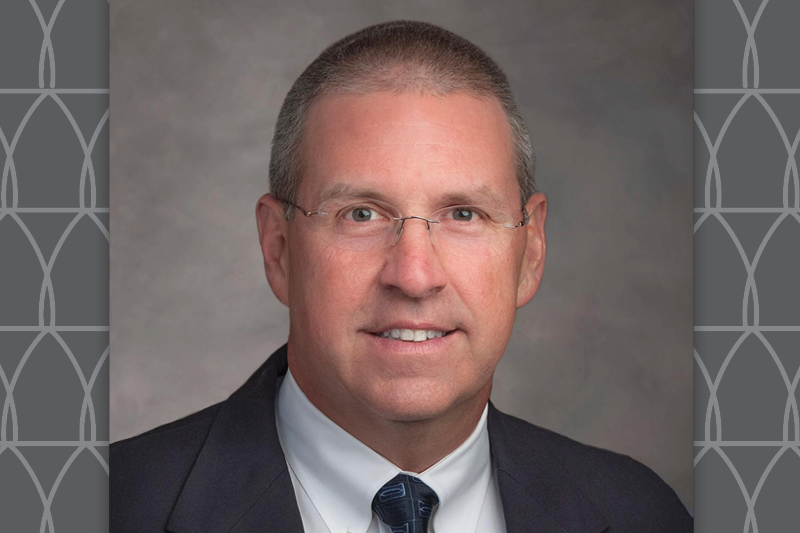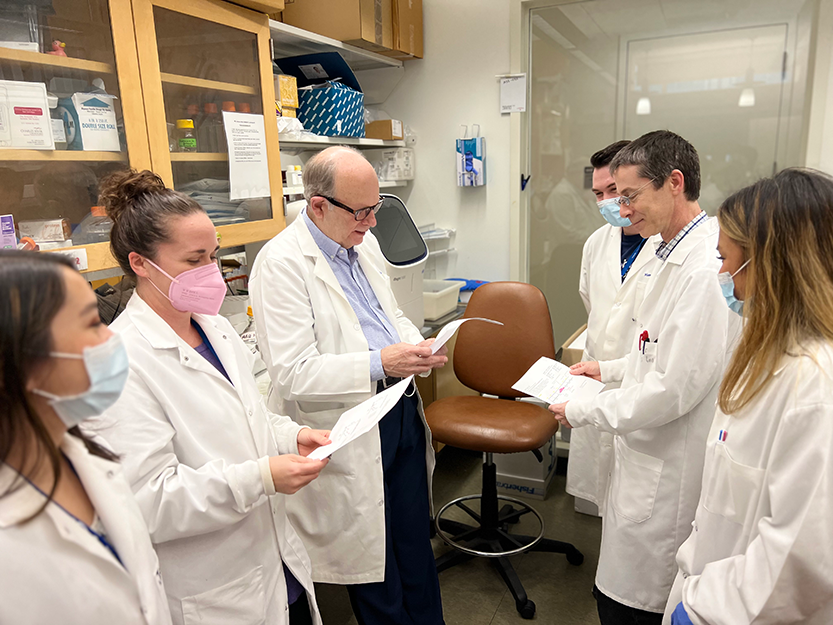
The Duke Regional Biocontainment Lab (RBL), a vital hub for research of infectious diseases, is gearing up for a new era under the leadership of Herman Staats, PhD, and a significant boost in funding from the National Institutes of Health.
Staats, a professor of pathology, took the helm as director of the RBL on Jan. 1. It’s a passage from bench to leadership of the lab that’s a key resource for the Duke Human Vaccine Institute, where scientists are actively involved in the ongoing fight against COVID-19, development of an HIV vaccine and making a longer-lasting flu shot.

“Herman comes to this role with a wealth of experience in infectious disease and immunology, and with a fresh new perspective for the RBL,” said former director Colin S. Duckett, PhD, vice dean for basic science at the Duke University School of Medicine.
The transition in leadership results from a strategic reorganization at the medical school that began last fall and strengthens Duckett’s role as leader of the basic science community.
It’s a healthy handoff that includes a $14 million Resources and Workforce Development grant from the NIH that Duckett secured to support the lab’s operation and maintenance.
As Staats leads the RBL into the future, his focus on collaboration, safety, and innovative science promises to keep the facility at the forefront of research and prevention of infectious threats.
“The RBL plays a critical role in Duke’s and the nation’s fight against infectious diseases,” said Staats, a DHVI member. “We have the facilities, expertise and the collaborative spirit to tackle some of the most pressing health challenges, and I’m excited to work with the team to further strengthen our impact.”
Staats’ familiarity with the RBL goes beyond the administrative. Trained in immunology and microbiology, he’s used the facility for years, conducting animal studies for influenza, West Nile virus and poxvirus vaccine research.
DHVI Director Barton Haynes, PhD, said Staats is “perfectly positioned to be a transformative leader at the RBL,” which was commissioned in 2007 after a grant submitted by Haynes brought in NIH funds to build it.
Staats’ immediate goals are strengthening the RBL’s core units in immunology, virology, and microbiology. One key focus is improving data sharing and harmonization across research labs to make research findings more accessible.
“Sharing data is not just about transparency,” Staats said. “It’s about building a collective knowledge base that can accelerate scientific progress.”
The Duke Regional Biocontainment Laboratory is dedicated to basic research for drugs, diagnostics, and vaccines against emerging and reemerging infections and biodefense. As one of only 12 in the U.S., it provides state-of-the-art facilities for pandemic preparedness.
It is open to Duke scientists, their collaborators, and researchers from the Triangle and Southeast institutions. Duke School of Medicine, University of North Carolina Chapel Hill, and U.S. Food and Drug Administration scientists collaborate there to test gonorrhea vaccine candidates.

Although a vaccine for the flu exists, it’s imperfect. The influenza virus is vexing to combat because it’s always changing, but Duke scientists working at the RBL are devising an approach for a universal flu vaccine that can target the virus, regardless of the variations of flu strains that may emerge each year.
“An influenza vaccine that’s more effective, or maybe you don’t need to take every year, but every three years or five years, can have an enormous impact,” said Staats.
However, the lab facilities would not be possible without dedicated funding and infrastructure. The new award from the National Institute of Allergy and Infectious Diseases grant “allows us to maintain top-notch safety standards, invest in cutting-edge equipment and offer more cost-effective services to researchers,” he said.
Staats believes the funding will maximize what the lab was designed for as a center for research of select agents that require special containment and could not be conducted in a standard lab. This includes a strong focus on safety and security, with ongoing development of rigorous protocols that involve local public safety officials.
“We are committed to using our resources and expertise to make a real difference in the lives of people around the world,” Staats said.